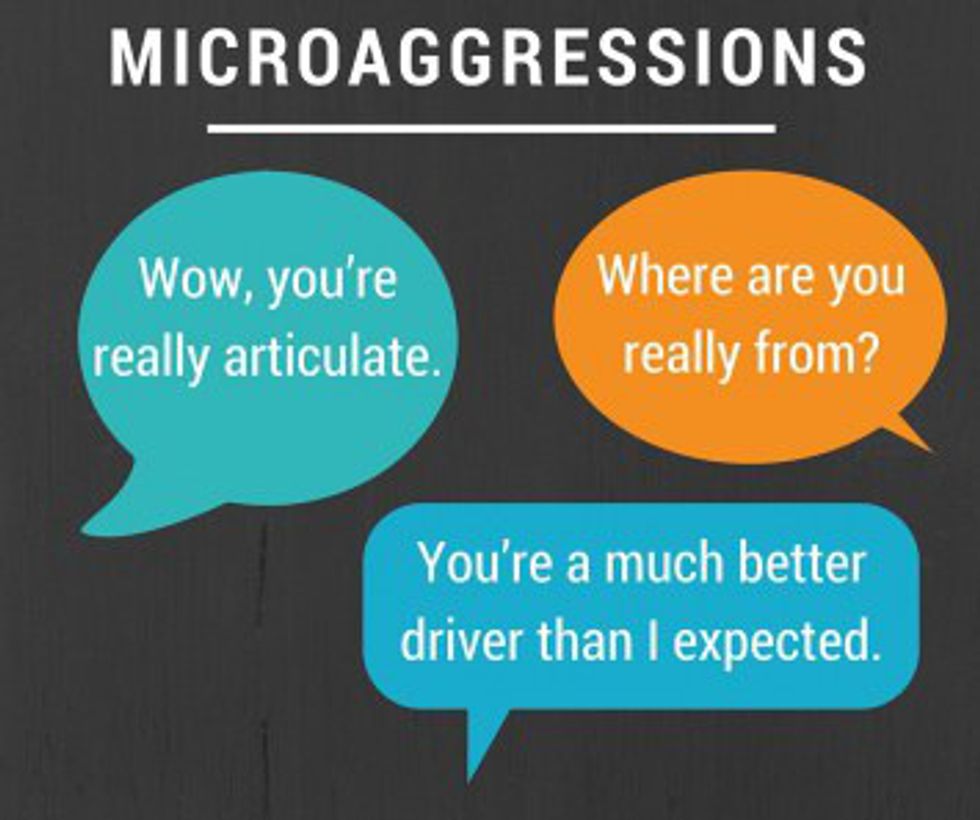Earlier this week, I had the privilege of going back to my high school and watching a diversity and leadership training I had gone through as a young teen to become a peer trainer and help teach students the power of diversity and respect.
One of the things covered in this particular training was over the discussion-worthy topic of microaggressions, and how we can stop them. So what are microaggressions you ask? According to Psychology Today, they are "The everyday verbal, non-verbal, environmental slights, snubs, or insults that can intentionally or unintentionally communicate hostile or derogatory messages to a person based on their marginalized group."
So what does this mean in layman"s terms? It means that microaggressions are statement's made towards a certain marginalized group that causes hostility and degradation towards said group.
Some prime examples of these are "You throw like a girl" or "You speak English really well for being from *insert non-English speaking country here*"
Clearly not only are these insulting, but they can cause some groups to seriously feel hurt and separated from the rest of society. While it may not seem like that big of a deal, people are hurt by microaggressions, and they face them every day. I am pretty sure if you do not deal with them every day, you at least hear them. While people may not care, they still need to stop being used. So how do we do this? Here are a few steps how:
1. Acknowledge what was said.
Realize what one person said to another could be potentially harmful or hurtful. Realize that this is the time to speak up, and if you are the person facing it, it should be extremely important for you to say something. Just a few months ago, someone was complaining to me about how stupid something was and referred to it as gay. As a gay person, I was seriously insulted, so I spoke up about it, and I got the apology I deserved.
2. Tell the person to stop or how it makes you feel in a respectful tone.
You won't get anywhere productive with a person if you won't be respectful, so it extremely important you speak up in a mature and respectful manor. This way, the person is more likely to think about what they said and hopefully not saying it again.
3. Don't use them yourself, and if you do, STOP.
This should be a no-brainer, but for some people, this is as much part of their lexicon as everyday English. If this is you, please think about what you say and how it could be potentially hurtful to others. I know it sounds like you are trying to be respectful, but saying these things are not seen as respectful.
And to those who fall victim to these microaggressions every day, know that it is not OK and that you shouldn't have to deal with these. And while it may be hard to stand up, it may be the best thing you can do.
By working together on stopping these statements, we can make our society and environment for people who may not always feel safe in society.




























